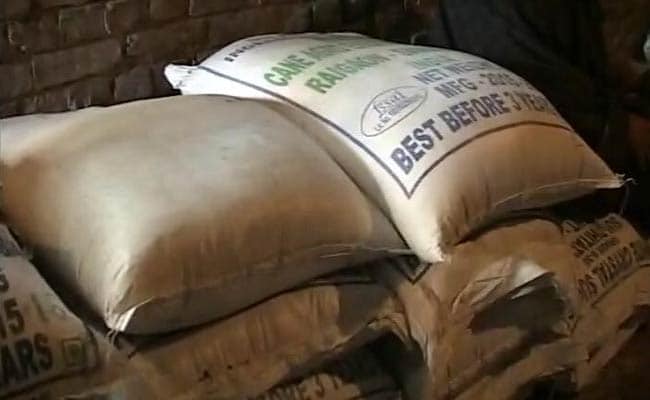Around 17 lakh people, more than 2 lakh in Srinagar city alone, will not be covered under the Act.
Srinagar:
The implementation of the National Food Security Act, meant to provide subsidised food grains to two thirds of India's population, has triggered a major political controversy in Jammu and Kashmir.
There have been a series of protests against the distribution of rations under the Act with the government saying what is best for the country is being implemented in the state while the Opposition says the government is persecuting the people.
Shafqat Ali is among thousands who are worried that the Act will deprive his family of their share of ration. A government employee, Shafqat's family of three will get just 15 kg rice each month as against the 35 kg they have been getting.
"I have a family of three, so I will be getting just 15 kg rice. Is that enough for us to survive for the month? It is sheer injustice towards the common man," said Shafqat Ali.
The Act, which will be implemented from February, covers 95 per cent of the state's population. Out of those covered under the Act, 64 per cent will get rice for Rs 3 per kg while others will get it for 10 rupees per kg, the government says.
 There will be a monthly cap of 5 kg rice per person. But 17 lakh people, more than 2 lakh in Srinagar city alone, will not be covered under this Act, according to the government's records.
There will be a monthly cap of 5 kg rice per person. But 17 lakh people, more than 2 lakh in Srinagar city alone, will not be covered under this Act, according to the government's records.
The issue has snowballed into a major political controversy.
"Please don't inflict cruelty on people, you want to keep your alliance partner the BJP happy and their make national agenda successful, but you can't deprive the people of Jammu and Kashmir from food," said National Conference spokesperson Junaid Mattoo.
But defending the government's decision, Minister Zulfikhar Ali said, "The system has been implemented across the country, and we have brought the same model here. It is running successfully in Maharashtra and other states of the country and people are benefiting by the act."
There have been a series of protests against the distribution of rations under the Act with the government saying what is best for the country is being implemented in the state while the Opposition says the government is persecuting the people.
Shafqat Ali is among thousands who are worried that the Act will deprive his family of their share of ration. A government employee, Shafqat's family of three will get just 15 kg rice each month as against the 35 kg they have been getting.
"I have a family of three, so I will be getting just 15 kg rice. Is that enough for us to survive for the month? It is sheer injustice towards the common man," said Shafqat Ali.
The Act, which will be implemented from February, covers 95 per cent of the state's population. Out of those covered under the Act, 64 per cent will get rice for Rs 3 per kg while others will get it for 10 rupees per kg, the government says.

The issue has snowballed into a major political controversy.
"Please don't inflict cruelty on people, you want to keep your alliance partner the BJP happy and their make national agenda successful, but you can't deprive the people of Jammu and Kashmir from food," said National Conference spokesperson Junaid Mattoo.
But defending the government's decision, Minister Zulfikhar Ali said, "The system has been implemented across the country, and we have brought the same model here. It is running successfully in Maharashtra and other states of the country and people are benefiting by the act."
Track Latest News Live on NDTV.com and get news updates from India and around the world

